When you visit Kyoto and want to see a beautiful bamboo grove, there are several candidates. Arashiyama is famous for its bamboo grove, but it is, after all, very crowded. The fact that it is a little far from the city is also a drawback for those who want to see the sights efficiently in a short time. Ishimizu Hachimangu Shrine is recommended in such cases.
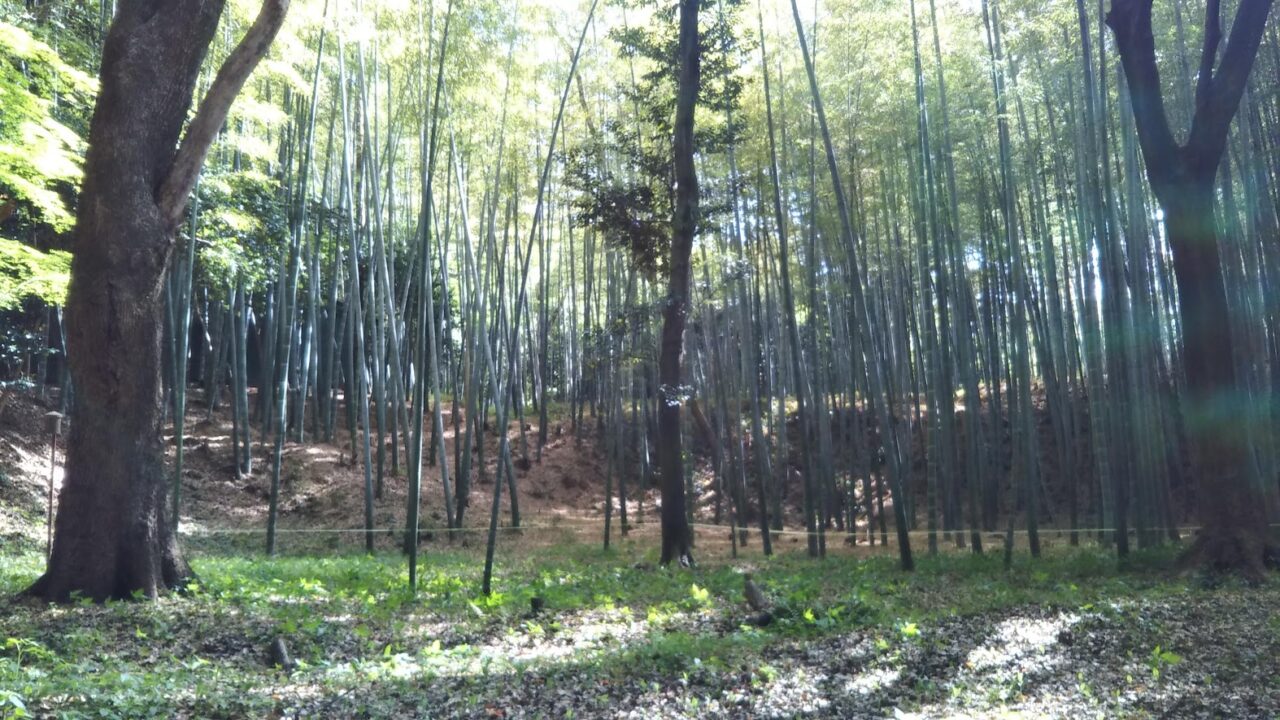
Ishimizu Hachimangu Shrine is famous as a shrine for warding off bad luck, but it is actually a beautiful bamboo area as well, with a magnificent bamboo grove around the shrine.
Cable Car
There are three ways to approach Ishimizu Hachiman Shrine: on foot, by car, or by cable car. We took the cable car up the mountain. The ticket purchasing logic of this ticket vending machine was complicated, and everyone had a hard time purchasing tickets. At the ticket gate, you can normally use SUICA or other rail cards, which is easier and faster. The boarding time is 3 minutes. If you have enough time, it is recommended to take a one-way ride only uphill and walk down the back approach to the temple while taking in the scenery.
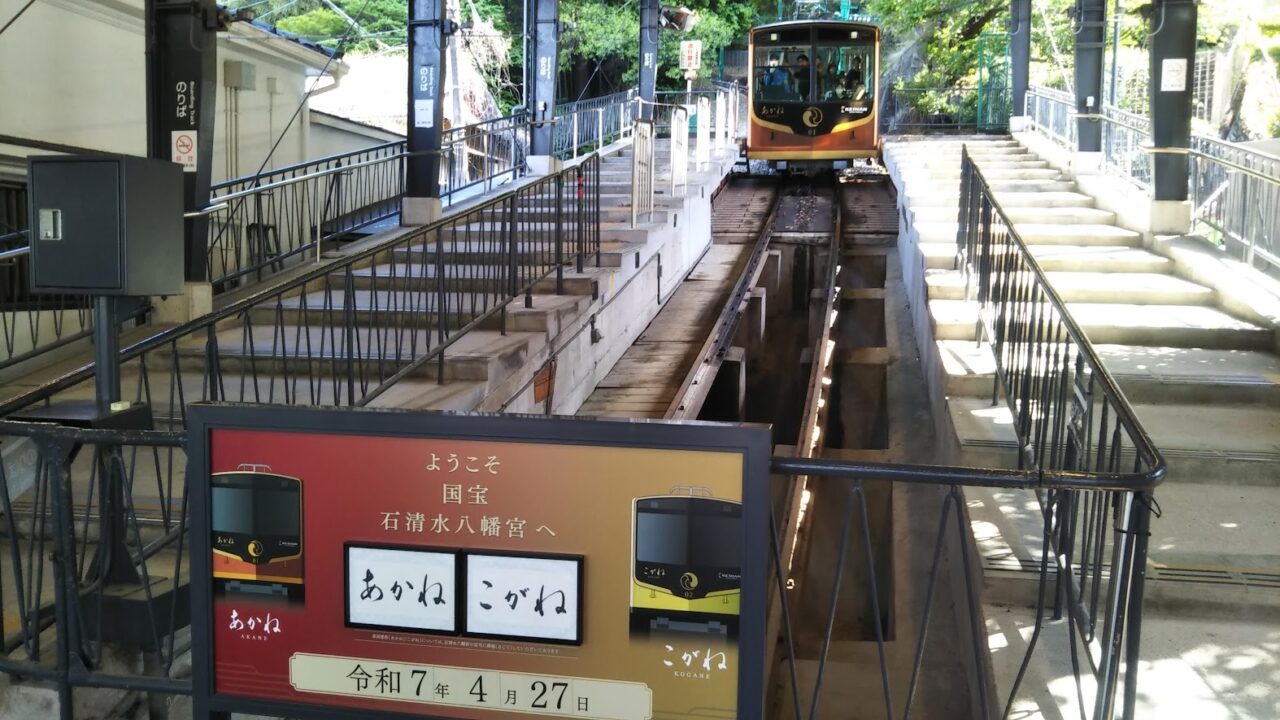
Main Shrine
Take the cable car from the “Cable Hachimangu Exit” to arrive at the “Cable Hachimangu Sanjo Station” where the main shrine of Ishimizu Hachimangu Shrine is located. From the Cable Hachimangu Shrine Sanjo Station, walk along a gentle mountain path for about 5 minutes to reach the main shrine.
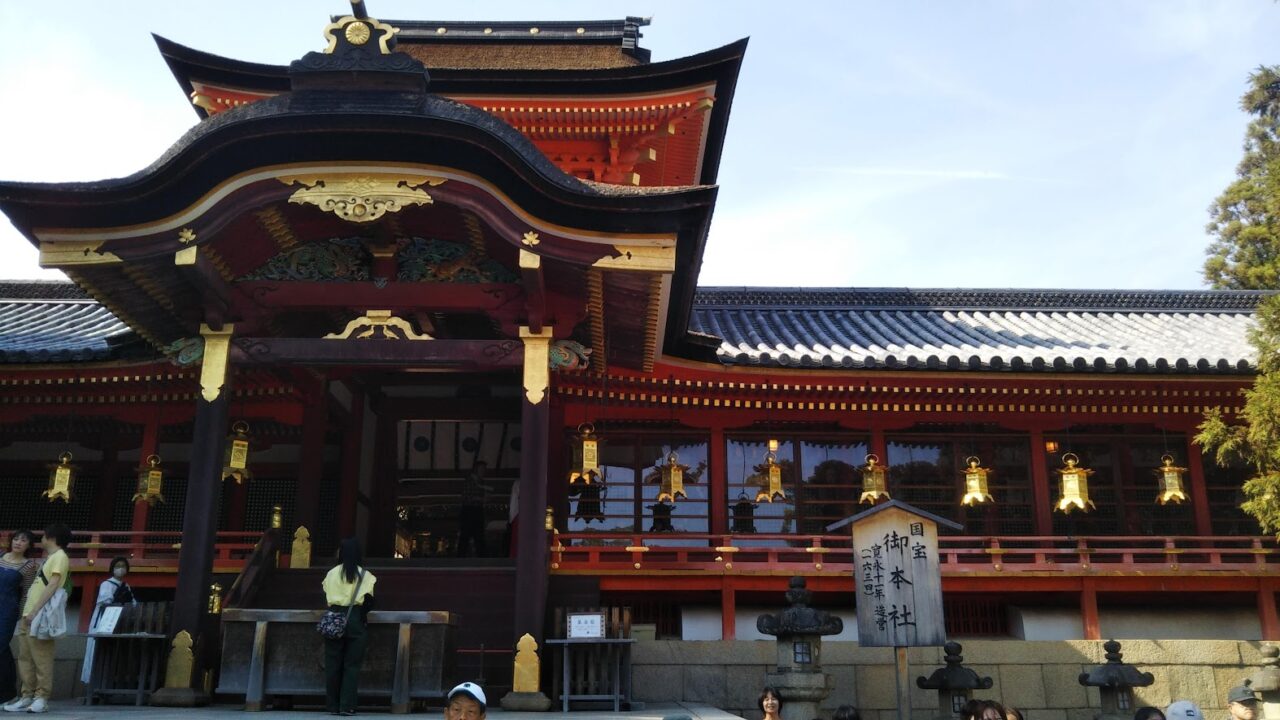
On this particular day, a dedication taiko drumming performance was being held. Unintentional encounters with such events are one of the most enjoyable aspects of traveling.
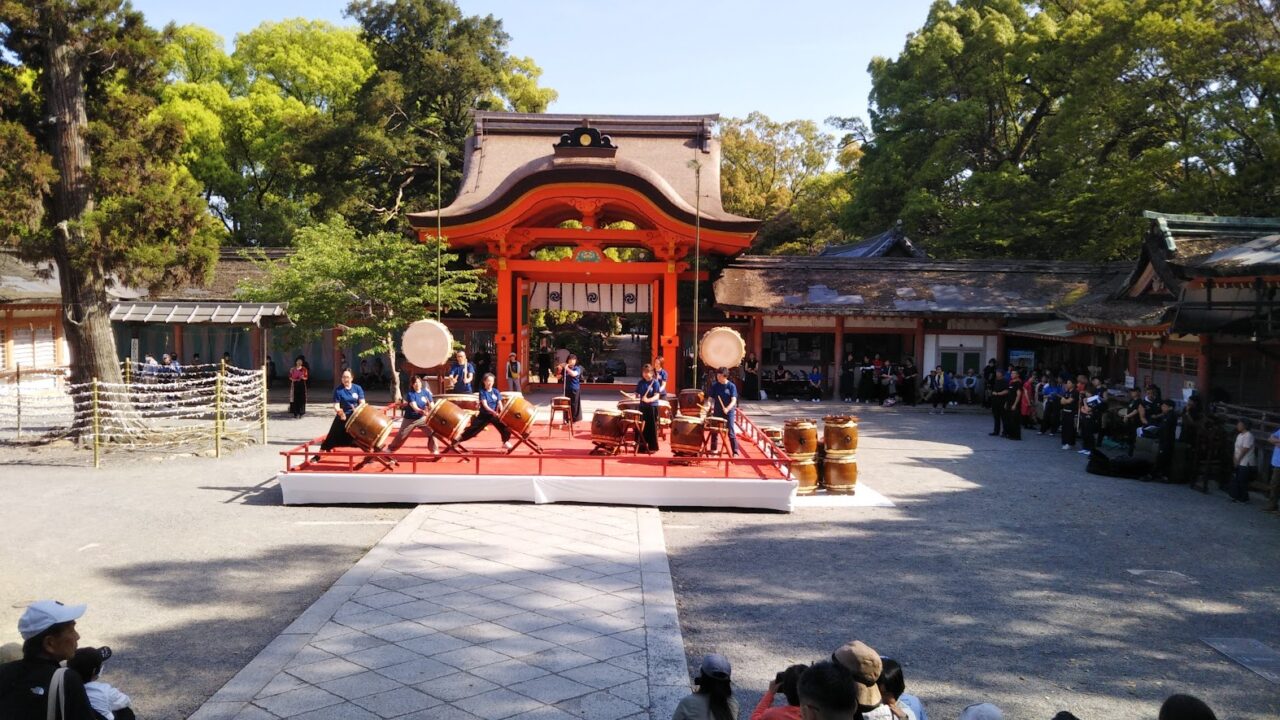
Beautiful Carvings
Stunning carvings can be savored. The front of the tower gate has a vivid dragon-tiger confrontation ranma sculpture. These two were chosen because they represent Shogun Tokugawa Ieyasu (born in the year of the tiger) and Shogun Tokugawa Iemitsu (born in the year of the dragon). Below them are white doves facing each other. The dove is a messenger of Hachiman Shrine.
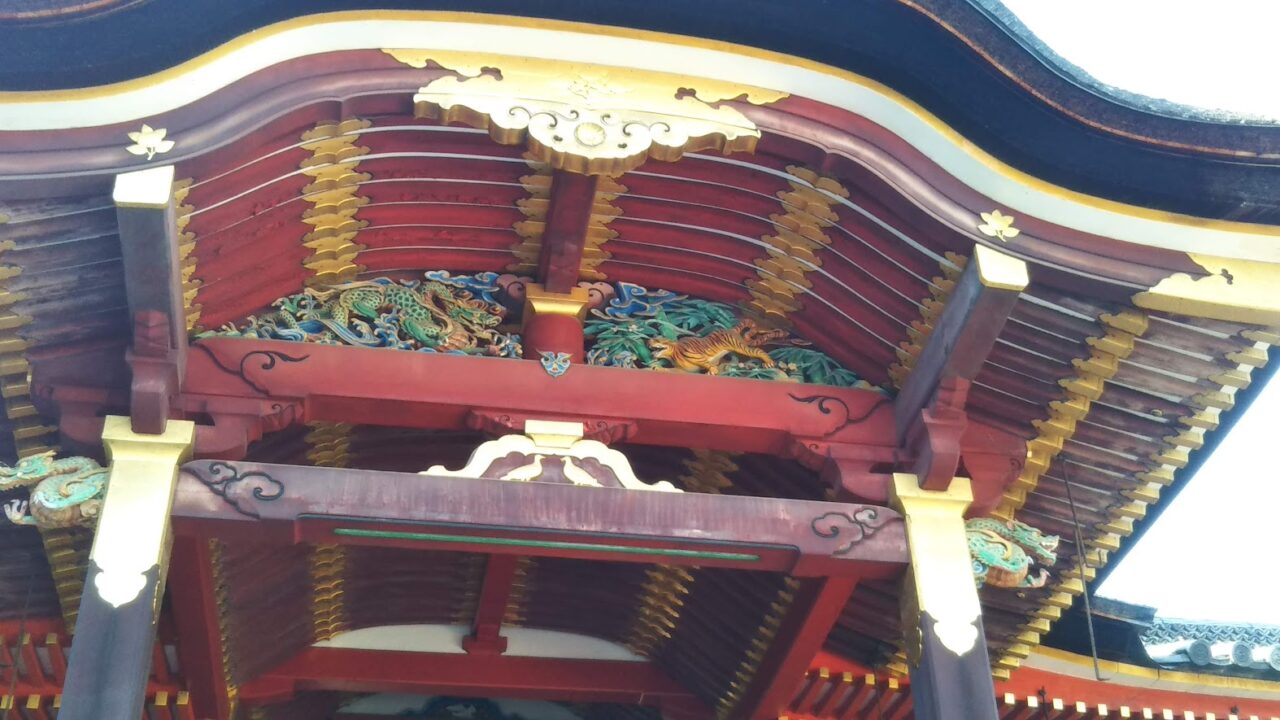
As shown in this following display, the main shrine of Hachimangu Shrine is coated in lacquer. There are also delicate carvings such as the “Mezuki-no-Saru” (monkey), “Kamakiri,” (Praying mantis), “Sai,”(Rhinoceros) and ‘Kirin’ (Legendary Chinese animal with a single horn), which are said to have been made by Jingoro Hidari, and “Golden Rain Gutters” (rain gutter).
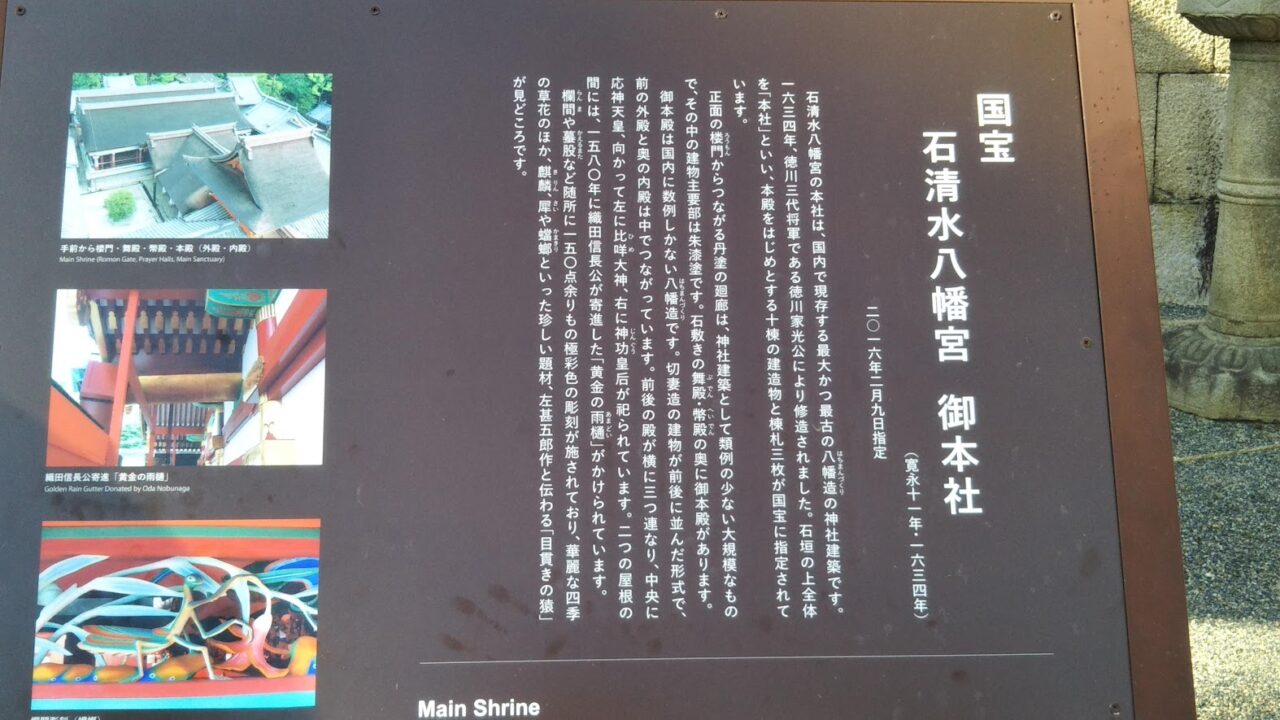
We happened to be able to visit during a special spring opening, so we were able to go inside. Inside, the attendant lovingly explained in detail, which was enjoyable. The carving of the praying mantis is outstanding. It is a pity that I could not show you the carving because it was strictly forbidden to take pictures. The building is open to the public in spring and fall, so if you have a chance, I highly recommend that you go inside and admire it.
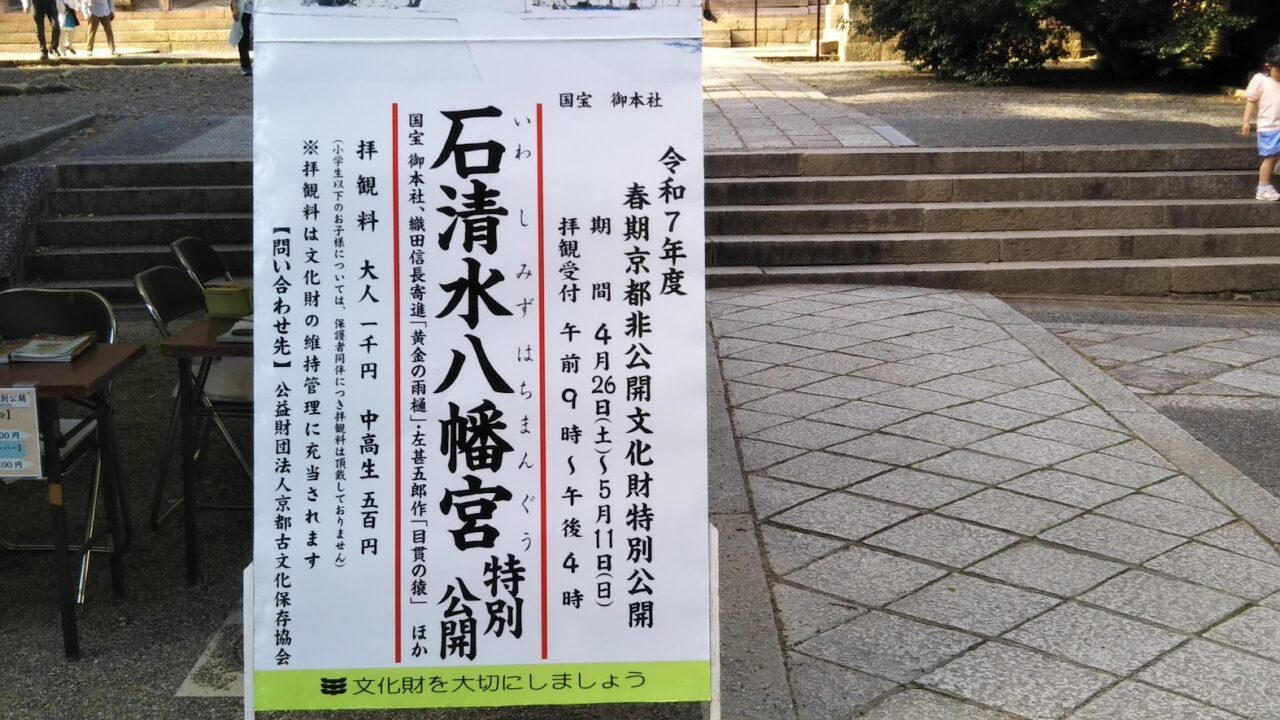
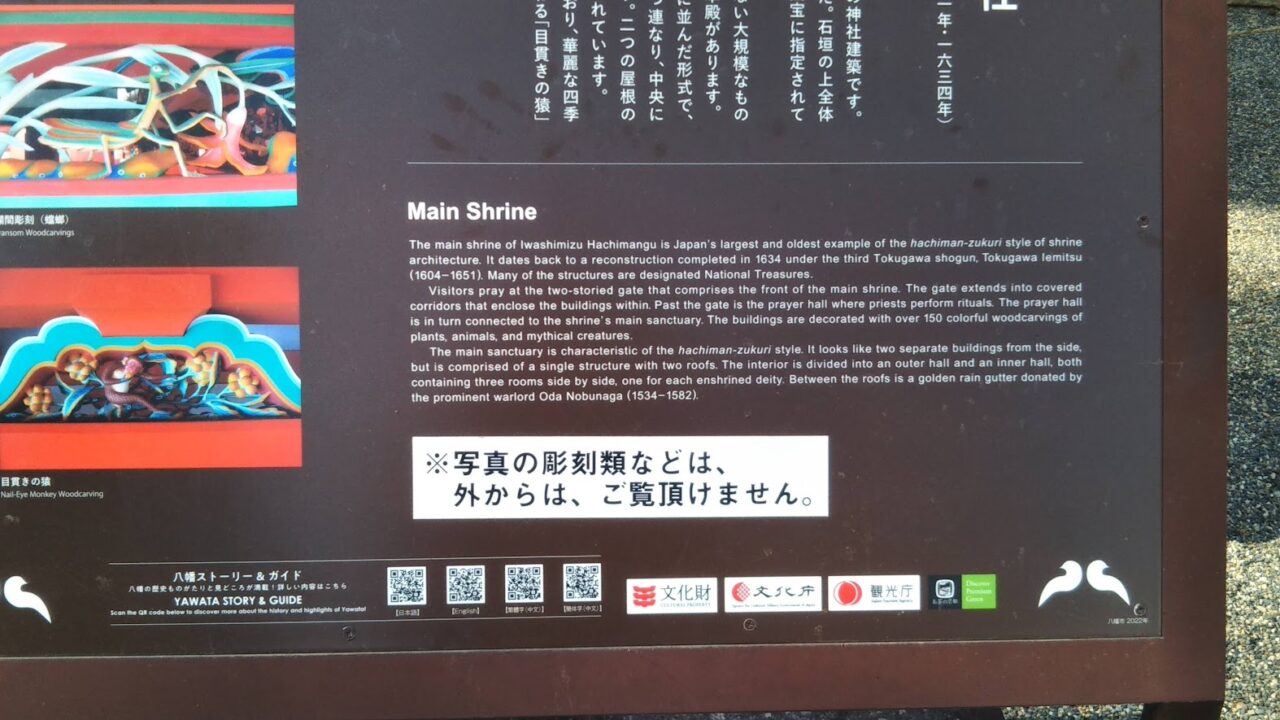
Thomas Edison’s filament
Another great place at Iwashimizu Hachimangu Shrine is the bamboo grove. The bamboo here has an amazing story: In the fall of 1879, Edison invented the first incandescent light bulb, but could only keep it lit for 40 hours. He wanted to somehow make it work for a longer period of time, so he tried various materials by trial and error. He happened to find a fan as a souvenir from Japan and used its bone to make a prototype light bulb. He succeeded in creating a durable filament that burned for more than 1,000 hours. The bamboo was made from Iwashimizu, and was supplied to the U.S. for more than 10 years.
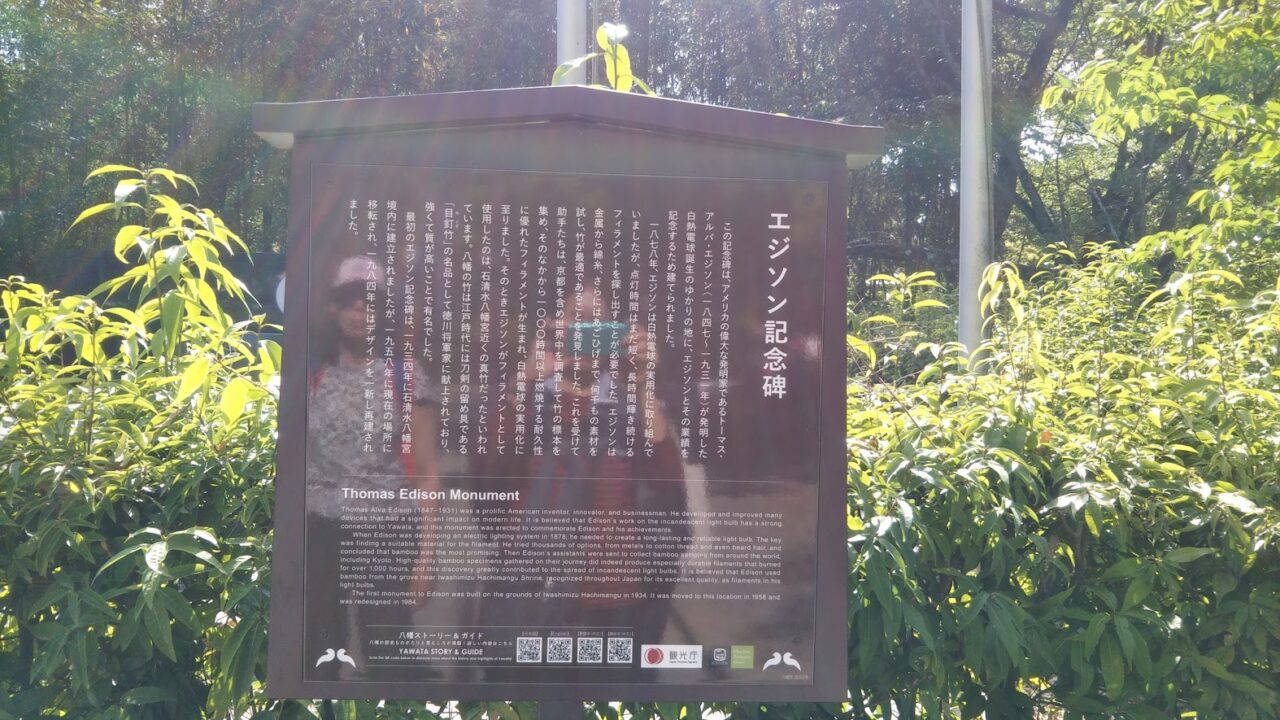
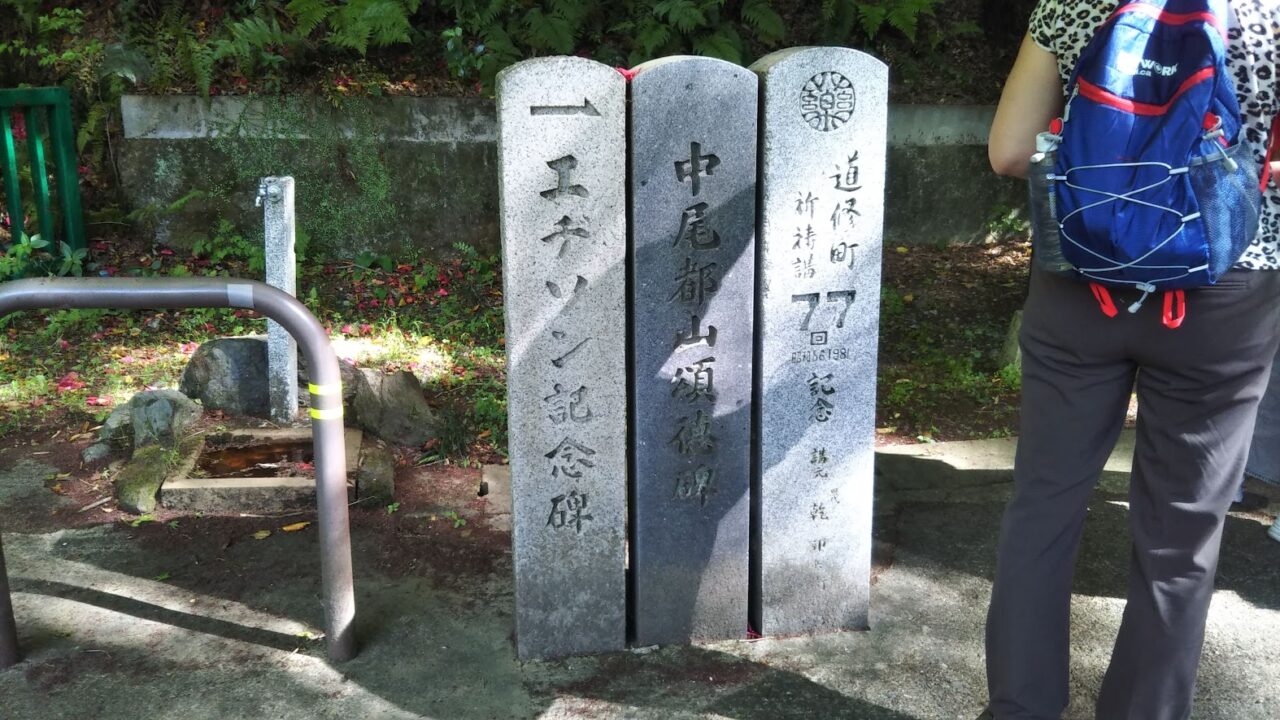
Panoramic view of Kyoto city
There is an observatory on the mountain top, from which you can see at a glance the city center including Kyoto Tower, Mt. Hiei, Mt. Arashiyama, and the Uji River.
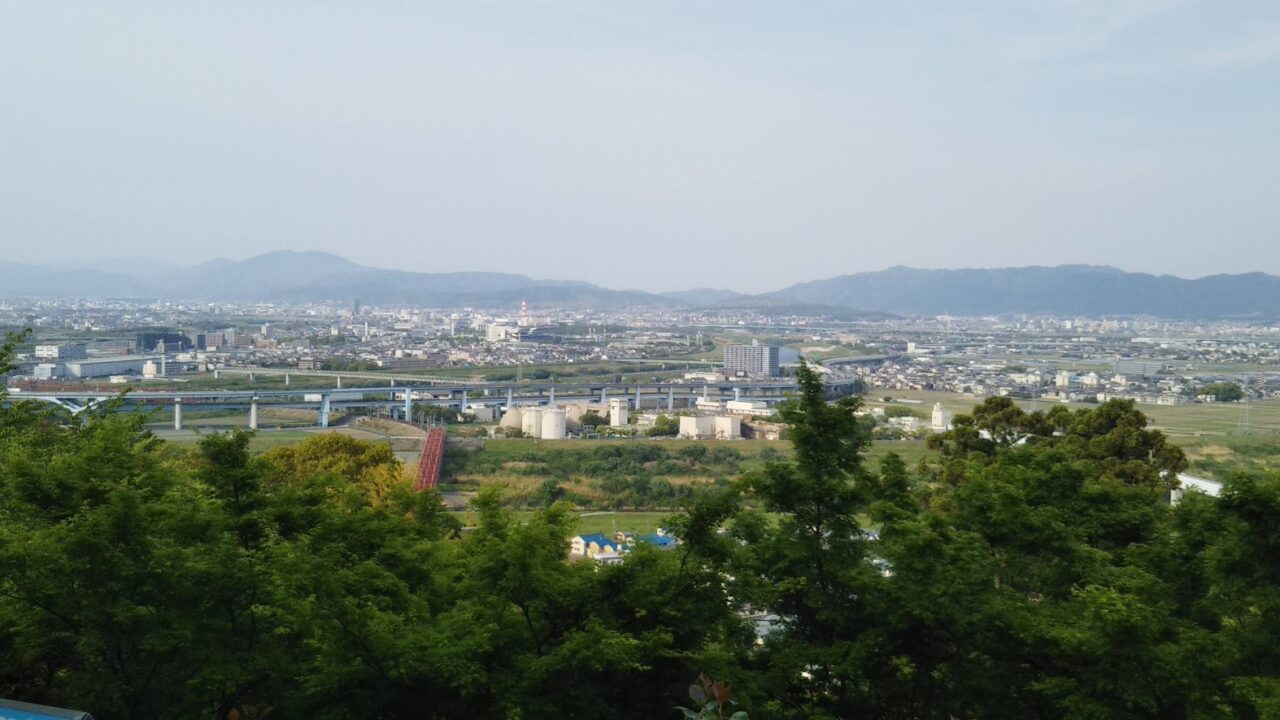
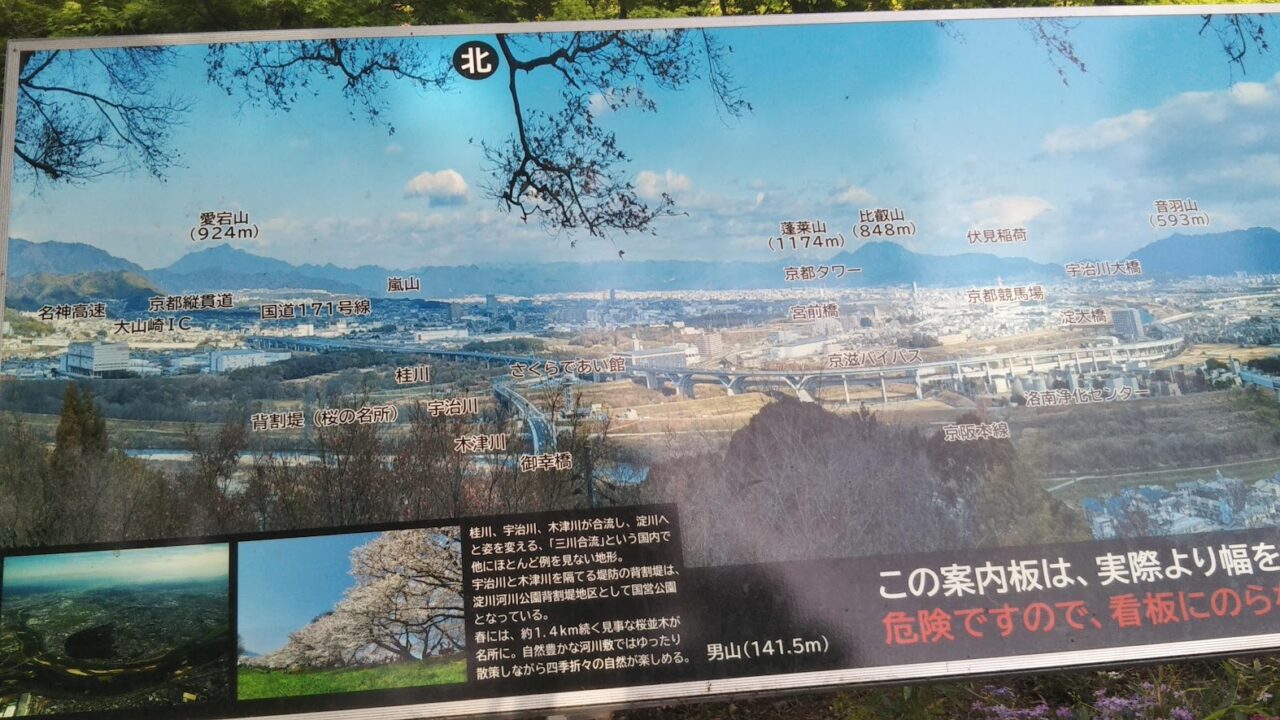
There are many places to visit with Iwashimizu Hachimangu Shrine. And for those who are short on time and want to explore the bamboo grove, this is a great place to do so. After all, there are bamboos that have been searched from all over the world to find the best ones by Edison. If you take a nature bath surrounded by bamboos, your travel fatigue will be gone in a flash. My Canadian friends who went with me enjoyed the area very much.
Stay tuned for more updates of Japan. See you soon!
Click here for more.


30 Hachiman Kobo, Hachiman-city, Kyoto
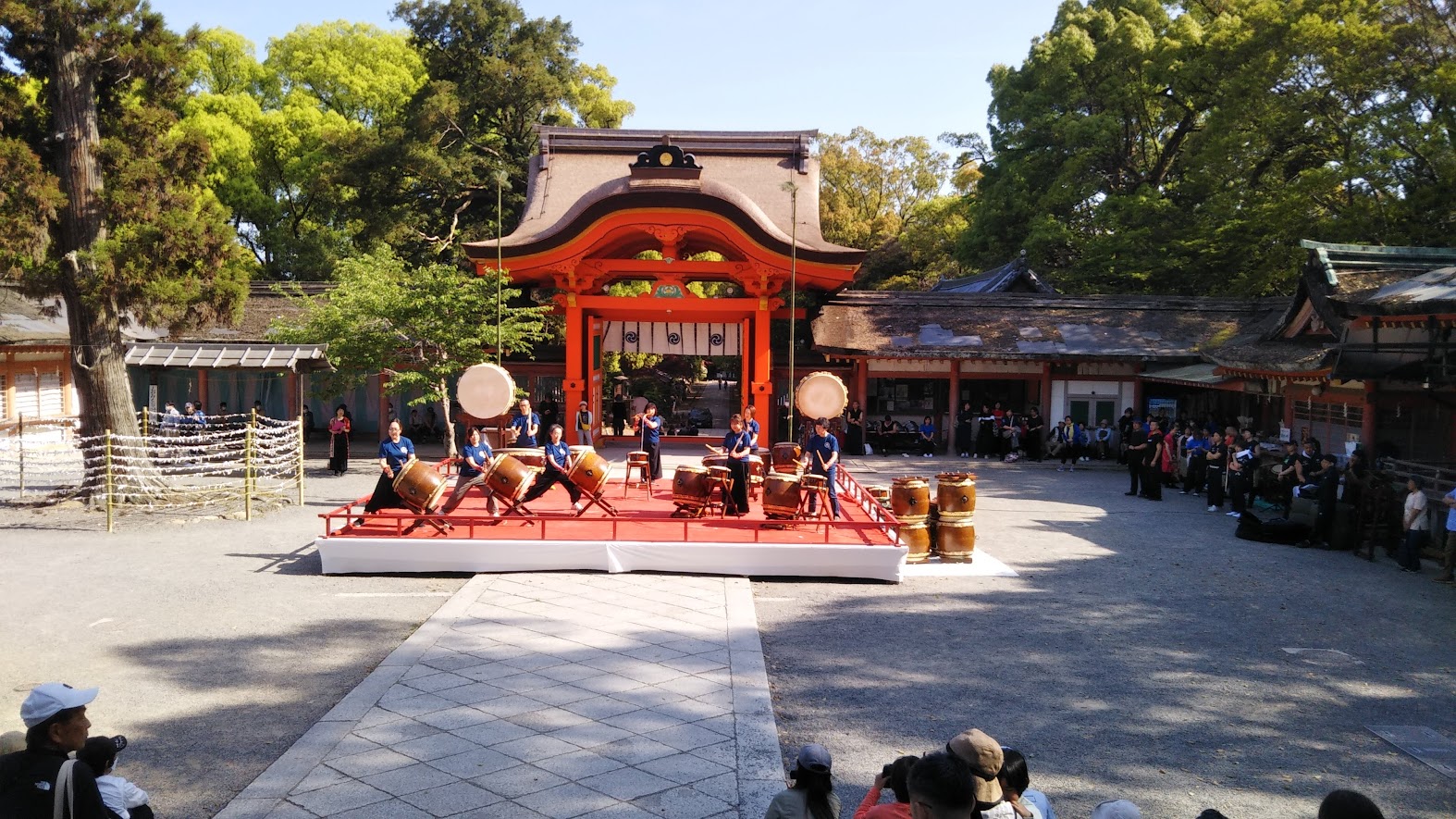
コメント